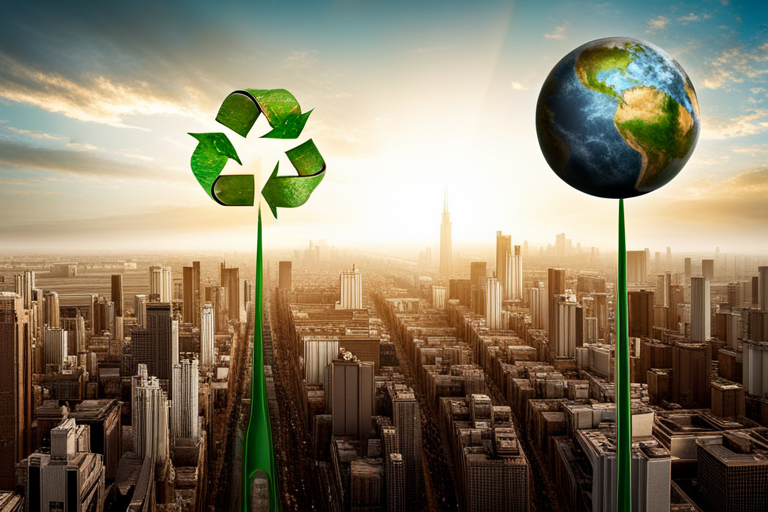In the face of burgeoning environmental concerns, there is a growing urgency to adopt sustainable lifestyles. A significant part of this paradigm shift involves reducing waste and embracing zero-waste living. This article offers a comprehensive guide to help you navigate your journey towards a more sustainable and waste-free lifestyle.
1. Understanding Zero Waste
Zero waste is a lifestyle choice that aims to minimise waste production and ensure no rubbish finds its way to landfills or incinerators. The zero-waste philosophy, which originated in the 1970s, is guided by five Rs: Refuse, Reduce, Reuse, Recycle, and Rot. The ultimate goal is to reuse or recycle everything, thereby creating a circular economy that conserves resources, reduces pollution, and minimises greenhouse gas emissions.
According to the World Economic Forum, implementing zero-waste strategies can slash waste management emissions by 84%. In the U.S., about 30% of the waste produced is food and yard waste, which can be composted instead of being dumped in landfills.
2. The Eco Benefits of Zero Waste
By embracing zero waste, we can help mitigate climate change, reduce pollution, conserve resources, and protect biodiversity. Additionally, a zero-waste lifestyle promotes personal wellbeing by encouraging healthier choices and fostering a deeper connection with nature. It allows us to live in harmony with the Earth and take responsibility for our impact on the environment.
3. Starting Your Zero-Waste Journey
Transitioning to a zero-waste lifestyle begins with a simple audit of your current waste habits. Identify areas where waste is being generated excessively in your daily routine. This could include reducing single-use plastics, minimising food waste, or finding alternatives to disposable products. Ponder over your consumption patterns and set realistic, achievable goals for waste reduction.
4. Reducing Waste in Your Everyday Life
When it comes to waste reduction, every little helps. Here are some practical steps you can take to cut down waste in your daily life:
4.1 Use Reusable Items
Switch to reusable items to cut down on single-use plastics. For instance, use a reusable water bottle instead of buying plastic ones, carry your own shopping bags, and opt for a refillable cup for your coffee.
4.2 Compost Your Organic Waste
Composting is an excellent way to recycle your organic waste. Not only does composting reduce the amount of waste going to the landfill, but it also creates nutrient-rich soil for your garden.
4.3 Go Digital
Switch to digital documents to save on paper and ink. Opt for paperless bills and digital receipts. This is a good way to avoid unnecessary chemical exposure from receipt paper, which is often coated with toxic BPA and BPS.
4.4 Buy Second-hand Items
Buying second-hand items is not only economical but also eco-friendly. It saves perfectly usable items from ending up in the landfill and reduces the demand for new products, thereby saving resources.
4.5 Shop Local
Shopping at local farmers markets can help reduce packaging waste. Local produce is generally fresher and has less packaging than store-bought alternatives. Plus, it supports local farmers and the local economy.
5. Reducing Waste While Travelling
Even while travelling, you can keep your commitment to a zero-waste lifestyle. Here are some ways you can do this:
5.1 Carry a Reusable Water Bottle
Avoid buying bottled water. Instead, carry a reusable water bottle. This is not only economical but also a great way to reduce plastic waste.
5.2 Prepare Your Toiletries
Instead of relying on hotel-provided toiletries, which often come in single-use plastic containers, bring your own toiletries in reusable containers.
5.3 Go Paperless
Opt for digital boarding passes and hotel bookings to reduce paper waste.
5.4 Bring Your Food Containers and Utensils
If you plan on getting takeaways or eating at places that use disposable cutlery, bring your own food containers and utensils.
5.5 Carry a Shopping Bag
Carry a reusable shopping bag for any shopping you plan to do.
6. Zero-Waste Swaps
Transitioning to a zero-waste lifestyle often involves finding sustainable alternatives to everyday items. Here are some swaps you can consider:
6.1 Use Natural Air Fresheners
Instead of aerosols or plug-in air fresheners, opt for natural alternatives like essential oil diffusers or soy-based candles.
6.2 Bring Your Coffee Cup
Many coffee shops offer a discount if you bring your own cup. Plus, it’s a great way to reduce paper and plastic waste.
6.3 Use Cloth Napkins
Instead of paper napkins, use cloth ones. They’re more absorbent, reusable and cost-effective in the long run.
6.4 Choose Metal, Glass, or Paper Packaging
Avoid products with plastic packaging. Instead, opt for products that come in metal, glass, or paper packaging, which are often easier to recycle.
6.5 Eat Seasonal, Plant-Based Food
A plant-based diet is not only good for your health but also for the planet. Plant-based foods generally have a lower environmental footprint compared to animal-based foods. Plus, eating seasonal food can reduce the carbon emissions associated with transporting food from far-off places.
7. Challenges in Achieving Zero Waste
Transitioning to a zero-waste lifestyle is not without challenges. Here are some common obstacles and how you can overcome them:
7.1 Cost of Waste Management
Investing in reusable items or composting equipment may require an initial financial outlay. However, in the long run, these investments often pay for themselves by reducing the need for disposables.
7.2 Contamination When Sorting
Mixing recyclable and non-recyclable items can lead to contamination, rendering the entire batch unrecyclable. It’s essential to educate yourself and your family about what can and cannot be recycled.
7.3 Space for Recycling
Recycling requires space to sort and store recyclables until they can be collected. If space is limited, consider compacting your recyclables to save space.
7.4 Lack of Support and Accessibility
In some areas, recycling facilities may be limited or non-existent. In such cases, consider starting a community recycling programme or lobbying your local government for better recycling facilities.
8. Involvement of Local Governments
Local governments play a pivotal role in promoting zero waste. They can set waste reduction goals, provide incentives for waste reduction, educate and raise awareness about zero waste, implement waste reduction policies and collaborate with businesses to promote zero-waste practices.
9. The Role of Technology in Achieving Zero Waste
Technology can play a crucial role in achieving zero waste goals. Waste-to-energy technology, recycling and waste sorting technologies, circular economy solutions, zero-waste apps and platforms, sustainable packaging innovations, and upcycling and repurposing technologies can all contribute to a more sustainable future.
10. Celebrate Your Progress
As you embark on your zero-waste journey, remember to celebrate your progress. Every step you take, no matter how small, is a step towards a more sustainable future. So go ahead, give yourself a pat on the back for every disposable coffee cup you didn’t use, every plastic bag you didn’t take, and every food scrap you composted. You’re making a difference!
In conclusion, transitioning to a zero-waste lifestyle may seem like a daunting task, but with small, consistent steps, it is entirely achievable. Remember that every bit counts, and each step you take towards reducing waste is a step towards a more sustainable and healthier planet. So why wait? Start your zero-waste journey today!




